
As close to central Europe as Greece may be, Christmas and New Year are celebrated according to very different traditions, following the rules of the Orthodox religion. For example Santa Claus arrives here later and under a different identity!
[sam id=”7″]
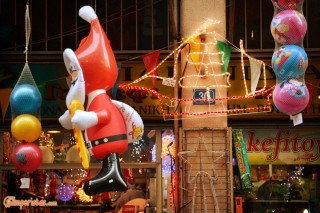
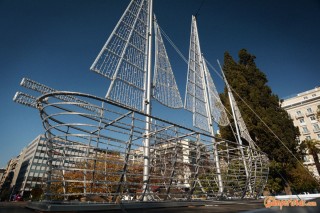 As the years go by, local traditions tend to mix with those of the Catholic world, so I found it would be interesting to do a rundown on the classic customs of the Orthodox. Let’s start from the fact that here they do not decorate a Christmas tree, but a model of a vessel, usually made of wood, which is an obvious reference to how the Greeks are related to the sea. This is why in the central square of Athens, they set up a bright ship during the holidays and in many shop windows you will see various types of illuminated ships. So no tree and no presents, at least not at Christmas. Gifts are exchanged on New Year’s and they are brought by Agios Vassilis, St. Basil who celebrate on the first day of the year. It is also interesting to note that for the Greeks, Christmas is a much less important and heartfelt holiday than Easter, that is the most important festival in the Orthodox religious calendar.
As the years go by, local traditions tend to mix with those of the Catholic world, so I found it would be interesting to do a rundown on the classic customs of the Orthodox. Let’s start from the fact that here they do not decorate a Christmas tree, but a model of a vessel, usually made of wood, which is an obvious reference to how the Greeks are related to the sea. This is why in the central square of Athens, they set up a bright ship during the holidays and in many shop windows you will see various types of illuminated ships. So no tree and no presents, at least not at Christmas. Gifts are exchanged on New Year’s and they are brought by Agios Vassilis, St. Basil who celebrate on the first day of the year. It is also interesting to note that for the Greeks, Christmas is a much less important and heartfelt holiday than Easter, that is the most important festival in the Orthodox religious calendar.
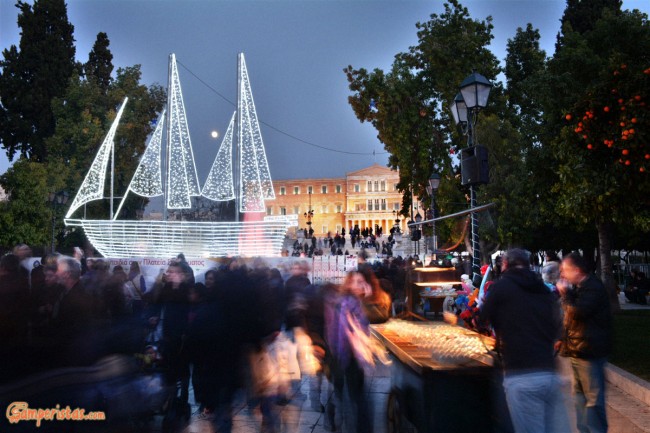
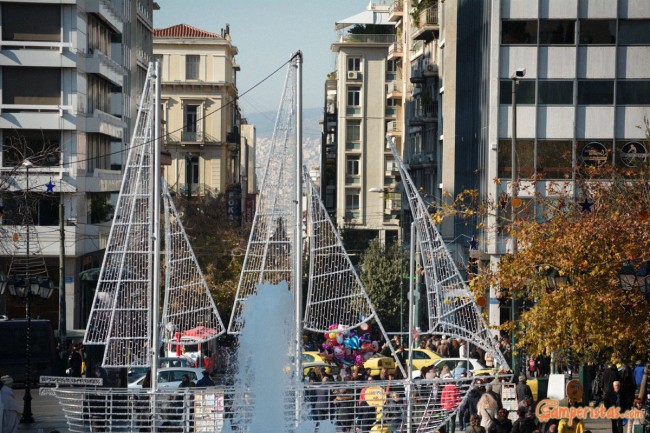
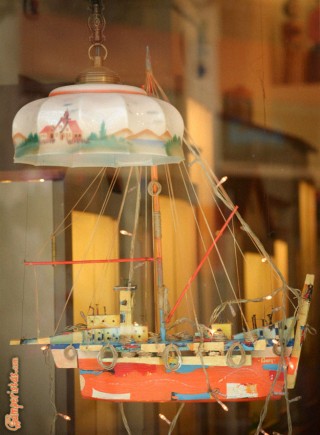
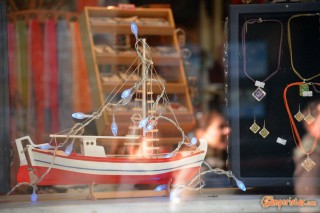
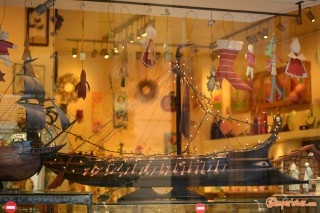
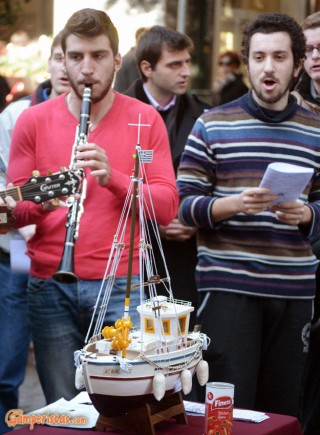 Throughout the holiday season Christmas carols (Kàlanda in greek) can be heard everywhere, but tradition has it that on Christmas, New Year and Epiphany’s eves, children go from door to door singing carols, using metal triangles as instruments. The hosts thanks them by giving them sweets or a small tip, which is usually much more appreciated. I added a short video under the photos to make you listen to one of the most classic tunes.
Throughout the holiday season Christmas carols (Kàlanda in greek) can be heard everywhere, but tradition has it that on Christmas, New Year and Epiphany’s eves, children go from door to door singing carols, using metal triangles as instruments. The hosts thanks them by giving them sweets or a small tip, which is usually much more appreciated. I added a short video under the photos to make you listen to one of the most classic tunes.
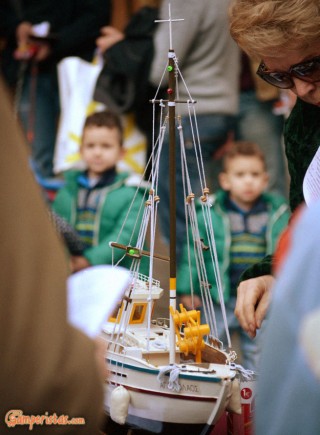
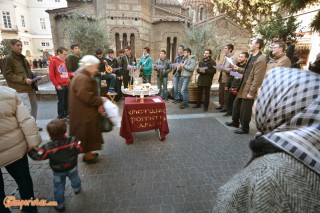
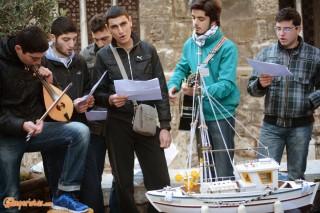
Melomakarona and Kourabiedes are the classical desserts of the festivities. The first are cookies made without animal fats and eggs, so suitable for those who follow the religious fasting, flavored with cinnamon and cloves, soaked in a syrup made with honey. Kourabiedes are instead shortbread flavored and covered with powdered sugar.
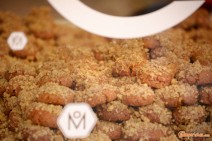
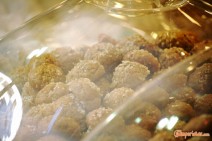
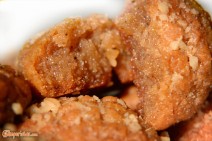
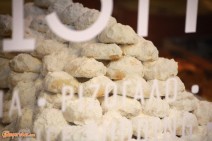

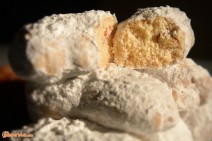
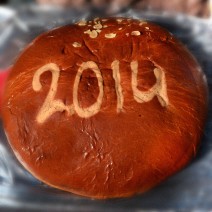 The classic cake for the new year is the Vassilopitta, to be cut together with the family, perhaps after the ritual card game of the first of the year. It is customary to cut a slice also for each absent family members naming them, because hidden inside the cake there is a coin that will bring good luck to the one that will find it in his portion.
The classic cake for the new year is the Vassilopitta, to be cut together with the family, perhaps after the ritual card game of the first of the year. It is customary to cut a slice also for each absent family members naming them, because hidden inside the cake there is a coin that will bring good luck to the one that will find it in his portion.
Below the “Diples”, fried rolled dough leaf, sprinkled with honey and chopped walnuts, widely used in the Peloponnese for the New Year.
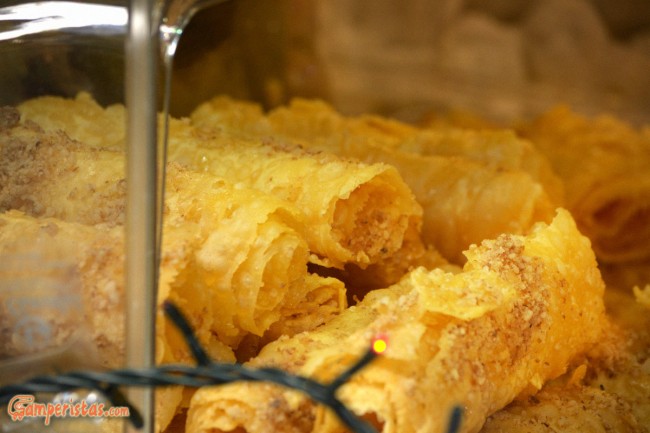
[sam id=”7″]
